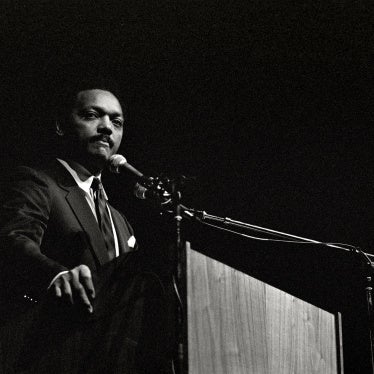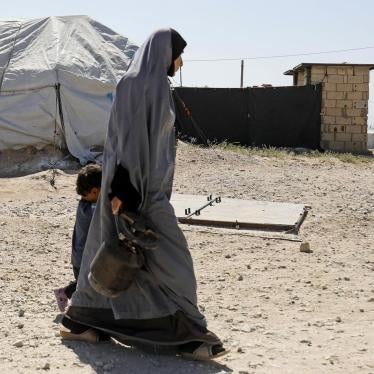The U.S. war on drugs has been waged overwhelmingly against black Americans, Human Rights Watch charged in a new report released "Punishment and Prejudice: Racial Disparities in the War on Drugs".
These racial disparities are a national scandal," said Ken Roth, Executive Director of Human Rights Watch. "Black and white drug offenders get radically different treatment in the American justice system. This is not only profoundly unfair to blacks, it also corrodes the American ideal of equal justice for all."
The ten states with the greatest racial disparities are: Illinois, Wisconsin, Minnesota, Maine, Iowa, Maryland, Ohio, New Jersey, North Carolina, and West Virginia. In these states, black men are sent to prison on drug charges at 27 to 57 times the rate of white men.
"Most drug offenders are white. Five times as many whites use drugs as blacks," said Jamie Fellner, Human Rights Watch associate counsel and author of the report. "But blacks comprise the great majority of drug offenders sent to prison. The solution to this racial inequity is not to incarcerate more whites, but to reduce the use of prison for low-level drug offenders and to increase the availability of substance abuse treatment."
Among the report's key findings:
Nationwide, blacks comprise 62 percent of drug offenders admitted to state prison. In seven states, blacks constitute between 80 and 90 percent of all people sent to prison on drug charges.
Nationwide, black men are sent to state prison on drug charges at 13 times the rate of white men.
Two out of five blacks sent to prison are convicted of drug offenses, compared to one in four whites.
Black men are incarcerated at 9.6 times the rate of white men. In eleven states, they are incarcerated at rates that are 12 to 26 times greater than that of white men.
Nationwide, one in every 20 black men over the age of 18 is in prison. In five states, between one in 13 and one in 14 black men is in prison.
"Punishment and Prejudice" also documents how drug law enforcement has fueled the exploding U.S. prison population. During the 1990s, more than one hundred thousand people were admitted to prison on drug charges every year. Over 1.5 million prison admissions on drug charges have occurred since 1980. The incarceration of nonviolent drug offenders has propelled the nation's soaring incarceration rate, the highest in the western world. Human Rights Watch calls for changes in drug control strategies to minimize their racially disproportionate impact and to reduce the overincarceration of nonviolent offenders. Among its recommendations, Human Rights Watch urges states to:
repeal mandatory minimum sentencing laws for drug offenders;
increase the availability of alternative sanctions;
increase the use of drug courts;
increase the availability of substance abuse treatment; and
eliminate racial profiling








